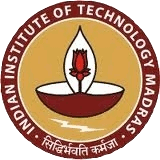Team:IIT Madras/HumanPractices
From 2013.igem.org
| Line 62: | Line 62: | ||
</p> | </p> | ||
<p dir="ltr"> | <p dir="ltr"> | ||
| - | So, as part of this project, we have created “Code Red- A comprehensive guidebook on the safe handling of red meat” in which we have printed out the | + | So, as part of this project, we have created <b><i>“Code Red- A comprehensive guidebook on the safe handling of red meat”</i></b> in which we have printed out the |
| - | details of meat processing, how consumption of meat can be made safer and how diseases associated with it can be reduced. We also went on distribution | + | details of meat processing, how consumption of meat can be made safer and how diseases associated with it can be reduced. We also went on <b>distribution |
| - | drives to distribute our new one of a kind guidebook at local butcher shops and family run slaughter houses in and around the city of Chennai. We believe | + | drives</b> to distribute our new one of a kind guidebook at local butcher shops and family run slaughter houses in and around the city of Chennai. We believe |
that this would not only help them to adapt some of their own practices and be more aware of their processes but this book is also a must have for all meat | that this would not only help them to adapt some of their own practices and be more aware of their processes but this book is also a must have for all meat | ||
lovers out there. | lovers out there. | ||
Revision as of 01:39, 28 September 2013
Human Practices
“We live in a society exquisitely dependent on science and technology, in which hardly anyone knows anything about science and technology.”
-Carl Sagan
What use are the rapid leaps in science and technology in the 21st century if they cannot be used to alleviate the issues of the society that has raised you? A lot of scientists will tell you that they are in the profession of changing societies and the lives of the people in it for the better. The budding scientists in our group are no different in terms of what motivates them. Our project on combating Shiga Toxin is our own humble attempt at trying to make the world a better place in our own small way and we feel that the human practices associated with this project is one chance we get to give back to the community, in a small way, from which we take so much.
As part of our “Science for the Masses” program, we have also organized several outreach events to reach out to the student scientific community at the
high school and collegiate level and educate them about iGEM and Synthetic Biology in general.
Every year, as part of our human practices we educate students about synthetic biology and give presentations at different institutes about iGEM talking about how a revolution in synthetic biology has the potential to change our lives. This time we decided to take it one step further so this year, never before done by IIT Madras or for that matter an Indian team at iGEM, we have initiated After interacting with small local slaughter houses we realized that in a developing country like India, where scientific information trickles down at snail’s pace to society, the gap between the ordinary people and science was just extraordinary. So, to truly help them, we realized that we had to start at the very grass root level of science because hitting them with the futuristic concept of synthetic biology would have only done what any futuristic concept does when introduced at the wrong time in that particular society- scared them!
So, as part of this project, we have created “Code Red- A comprehensive guidebook on the safe handling of red meat” in which we have printed out the
details of meat processing, how consumption of meat can be made safer and how diseases associated with it can be reduced. We also went on distribution
drives to distribute our new one of a kind guidebook at local butcher shops and family run slaughter houses in and around the city of Chennai. We believe
that this would not only help them to adapt some of their own practices and be more aware of their processes but this book is also a must have for all meat
lovers out there.
Finally, we have tried to bring iGEM and the open source concept to the pockets of people by creating a mobile app for the Parts Registry so that iGEM and synthetic biology enthusiasts can access it anywhere on-the-go for we believe that for the movement to truly spread, knowledge must be shared and available to all absolutely free of cost to let it grow alongside the society using it.
Download our mobile app from here
 "
"


